How to Repel Mosquitoes Naturally
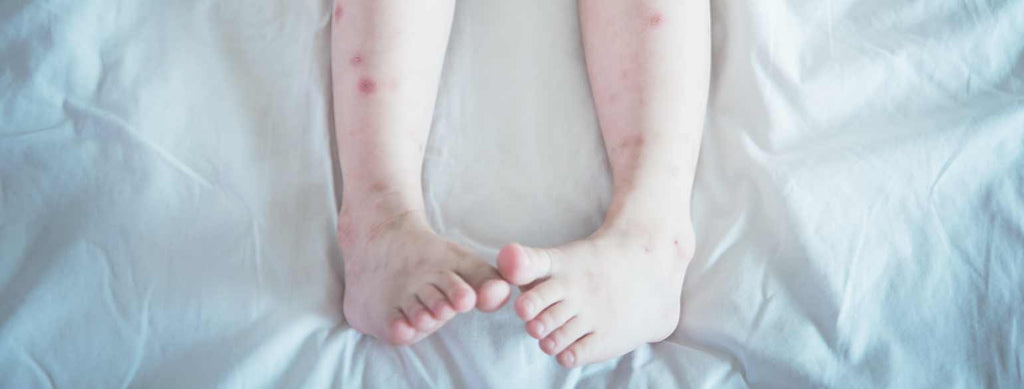
The mosquitos are definitely in full force this spring – I don't remember a time when they were this bad! My daughter woke up a few nights ago looking like she had the chicken pox, poor thing. She had been at the park the afternoon before, and I didn't think to bring my Insect Repellent along with us... now I'm not letting her outside without it!
So, a few facts about mosquitoes. There are approximately 3000 species of mosquitoes, including 176 in the United States alone. Not only are the bites itchy and unsightly, but these insects can transmit a number of diseases to humans (and pets) as well, including the scary ones we hear on the news like West Nile and Zika.
Warm summer evenings outside are my happy place, but mosquitoes can put a major damper on the whole experience. Nobody wants mosquitoes joining them at their BBQ, or while gardening or lounging in the hammock! But since mosquitoes aren't going to disappear on their own, the best we can do is take measures to reduce the number of them in our spaces. Let's start by determining what makes the perfect mosquito host.
What attracts mosquitoes?
Have you ever wondered why some people seem irresistible to mosquitoes while others are left alone? Well, as it turns out, there is actually scientifically-backed evidence for why this happens! Female mosquitoes seek out blood hosts to feed her young. She uses three things to find a host: 1) scent, 2) vision and 3) thermal sensor to detect body heat.
1. Scent.
- Blood type. This study found that type O blood is twice as enticing to mosquitos as type A blood. Type B and AB is somewhere in between.
- Carbon dioxide. Mosquitoes can detect carbon dioxide from long distances, so those who release higher amounts attract mosquitoes more – usually this means larger people, those who are exercising or those who are pregnant (during pregnancy, a woman exhales about 21% more carbon dioxide than she would otherwise). Even standing near someone exhaling high amounts of CO2 is enough to make you a target.
- Lactic acid built up in the body during exercise is a big attractant to mosquitoes, which goes along with body heat (below).
- Sweat. Mosquitoes are attracted to octenol, a chemical released in sweat, as well as cholesterol, folic acid, certain bacteria, skin lotions, and perfume.
2. Color and motion. Not only do mosquitoes use scent to find their prey, but they use vision as well, and are attracted to deeper, brighter colors. Light colors, especially white, are your best bet to wear if you want to avoid attracting mosquitos by color.
3. Body heat. Mosquitoes find hosts by tracking the infra-red radiation from warmer bodies. Warmer bodies are more attractive to mosquitoes. This is another reason why during exercise, or even pregnancy, chances are higher for bites.
What repels mosquitoes
Unfortunately, there are no fail-safes. Even knowing everything above, there is bound to be something that is going to make these blood-thirsty insects crave you for their next meal. Insect repellents are formulated to mask the CO2, lactic acid or other secretions that attract mosquitoes, and they also contain ingredients that repel them.
DEET (N,N-diethyl-meta-toluamide) is generally the most highly recommended chemical for conventional insect repellents. Originally developed by the USDA for the United States Army, it was first tested as a pesticide on farm fields, and started being used for the military in 1946. It has been in civilian use since the 1950s, and comes in levels of concentration from less than 10% to 100%.
However, the American Academy of Pediatrics recommends that DEET not be used on children in a concentration greater than 30%. They also recommend that insect repellents not be used on children under the age of 2 months.
The use of DEET isn't risk free. Although limiting use and sticking with products with lower percentages can certainly reduce the potential of toxic effects, young children – with thinner, more permeable skin – are at a much greater risk of toxicity. Poison control centers report that the most common symptoms of DEET toxicity include: lethargy, headaches, tremors, involuntary movements, seizures and convulsions.
Other side effects reported from frequent use of DEET include: rashes, skin or mucous membrane irritation, disorientation, dizziness, headache, difficulty concentrating, nausea, memory loss, shortness of breath, muscle and joint pain, tremors, muscle weakness and fatigue.
From the Duke University Medical Center News Office:
Use caution when using insect repellents containing DEET.
Every year, approximately one-third of Americans use insect repellents containing the insecticide DEET. Duke University Medical Center pharmacologist Mohamed Abou-Donia has spent 30 years researching the effects of pesticides. He has found that prolonged exposure to DEET can impair functioning in parts of the brain.
"Damage to these areas could result in problems with muscle coordination, muscle weakness, walking or even memory and cognition."
Abou-Donia says rats given even small doses of DEET for 60 days had a harder time accomplishing even the easiest tasks. Abou-Donia says short-term exposure to DEET does not appear to be harmful, but warns against using any product with more than a 30 percent concentration. Use as little of the product as you can, and don't use a product containing DEET if you're taking any medication.
"We found that the combined exposure to DEET and other chemicals is more dangerous than just DEET alone."
Abou-Donia also warns to never put a product containing DEET on an infant's or child's skin. The side-effects could be even more serious.
I'm Cabell Smith for MedMinute.
Botanicals
Another option for protection against mosquitoes is the natural route. There are many essential oils and botanicals that have proven very effective in repelling mosquitoes and other insects. There are plenty of DIY recipes online – but please note: even natural ingredients need to be used with care.
There are a number of essential oils that repel a variety of insects and can be used alone or as a blend with other essential oils. Always properly dilute essential oils in a carrier oil or other base.
The Environmental Protection Agency (EPA) has determined that certain "minimum risk pesticides" pose little to no risk to human health or the environment. The EPA has exempted them from the requirement that they be registered under the Federal Insecticide, Fungicide, and Rodenticide Act. This exemption provision is located in 40 CFR 152.25(f).
So what are these "minimum risk pesticides?" The EPA's active ingredients list includes a number of botanical oils, essential oils and herbs. I think this speaks to the validity that natural ingredients can be both "active" pest repellents AND safe!
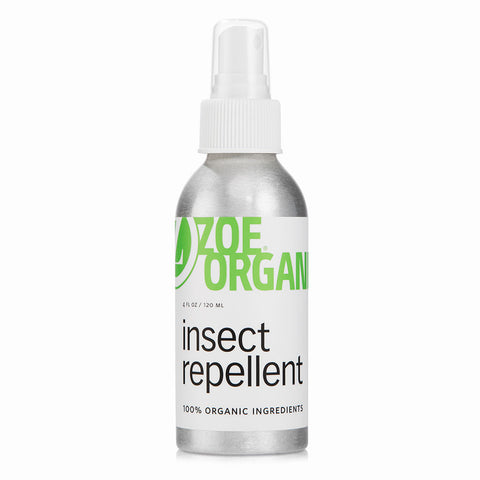
Zoe Organics Insect Repellent qualifies for this exemption, and we use only ingredients on the EPA's "active ingredients list for minimum risk." You can find a full list of our ingredients here. Even the base oils used in our formula are active repellents, which means 100% of our ingredients are active!*
Ingredients for Zoe Organics Insect Repellent:
- Soybean oil (organic/non-GMO)
- Castor oil (organic)
- Rosemary extract (organic)
- Geranium EO (organic)
- Peppermint EO (organic)
- Lemongrass EO (organic)
- Clove EO (organic)
- Thyme EO (organic)
- Cedarwood EO (organic)
*A trace amount of organic sunflower oil is in our rosemary extract.
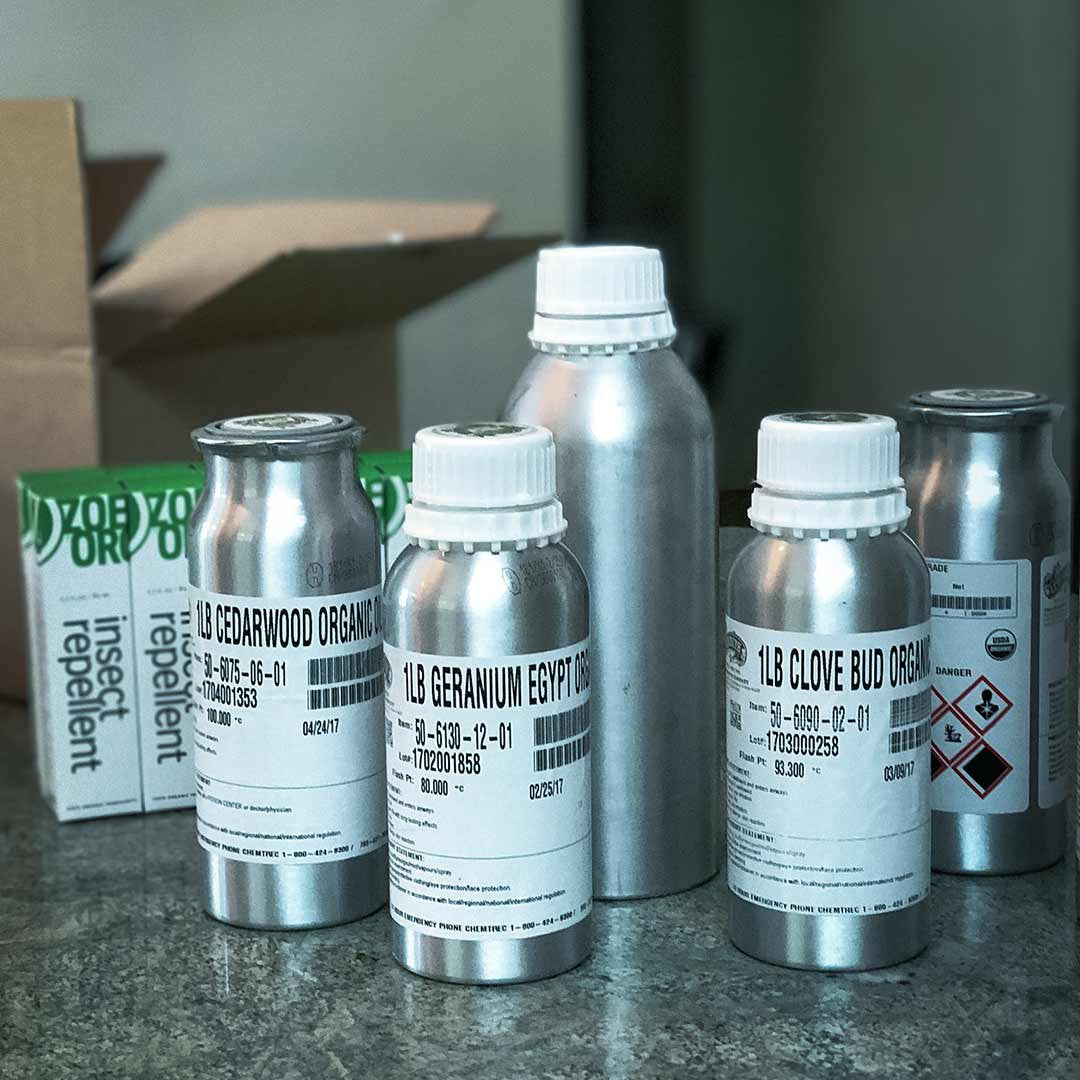
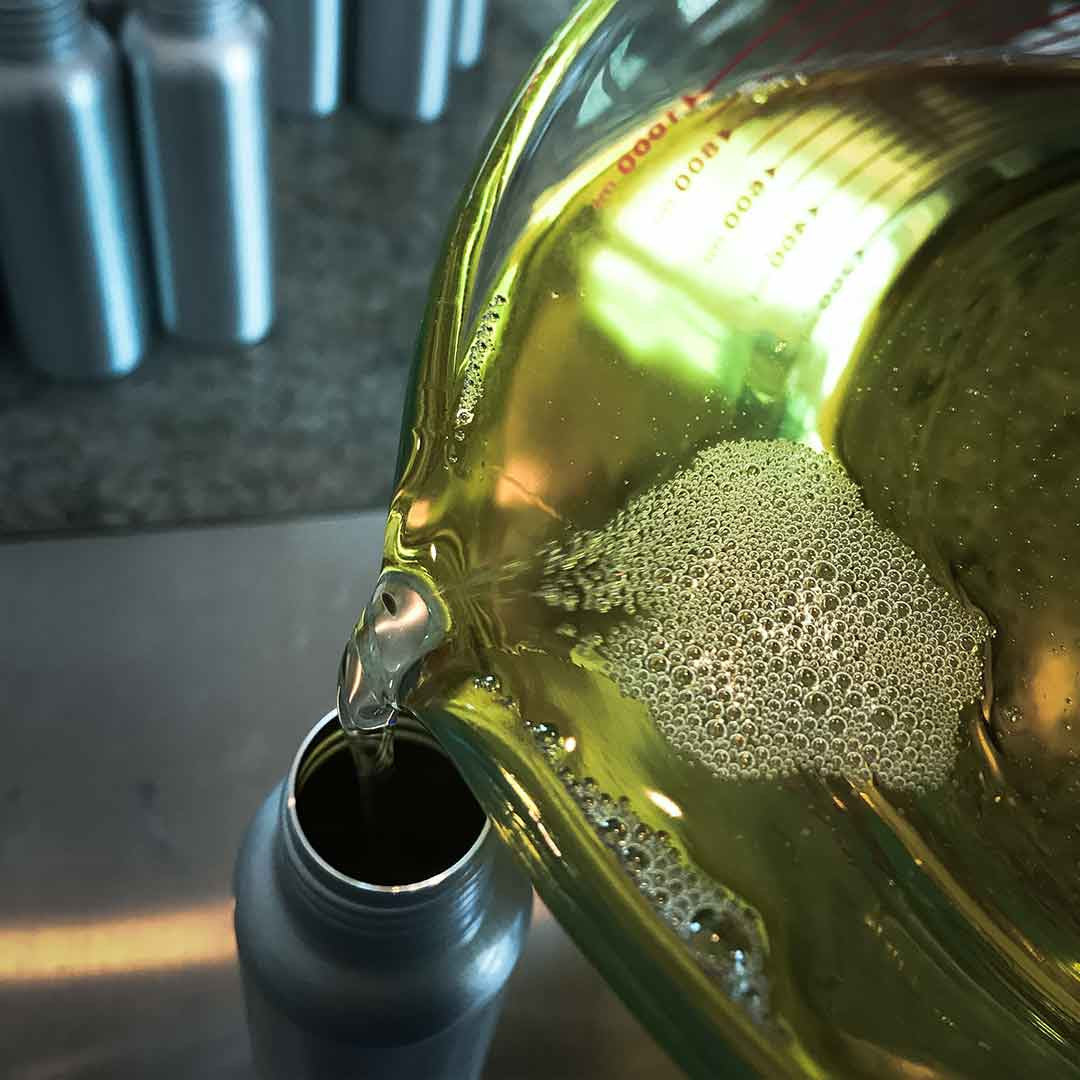
Some of the raw botanical ingredients for our Insect Repellent
Of course we're going to mention our own Insect Repellent in this post – we're very proud of its list of active ingredients and effectiveness! But even if you go elsewhere for your natural insect repellent, there are a few things to keep in mind – especially if you've recently made the switch from conventional products to natural.
Natural repellent needs to be applied more often that conventional DEET products. This means you may need to re-apply every hour, to allow the product to be fully effective. So when choosing a natural repellent, consider an oil-based blend, which may last longer than a water-based one.
Outside protection
If topical repellents aren't for you, or you'd like to take additional measures to diminish the mosquitoes in your space, try these:
- Mosquitoes need water to survive and breed, so be sure to remove standing water from around your house and yard. Don't forget to check in things like tires, roof gutters, bird baths, children's toys, garbage can lids, etc... even the smallest of containers that collect water can breed hundreds to thousands of mosquitoes!
- Try adding naturally repelling plants to your yard and patio: lemon balm, peppermint, rosemary, lavender and basil are our favorites – and bonus! You can add them to your summertime culinary recipes too!
- Add a few drops of lemongrass essential oil to a diffuser inside or on the patio. It will double as a mood booster!
Have any other tips? Tell us what works for you!
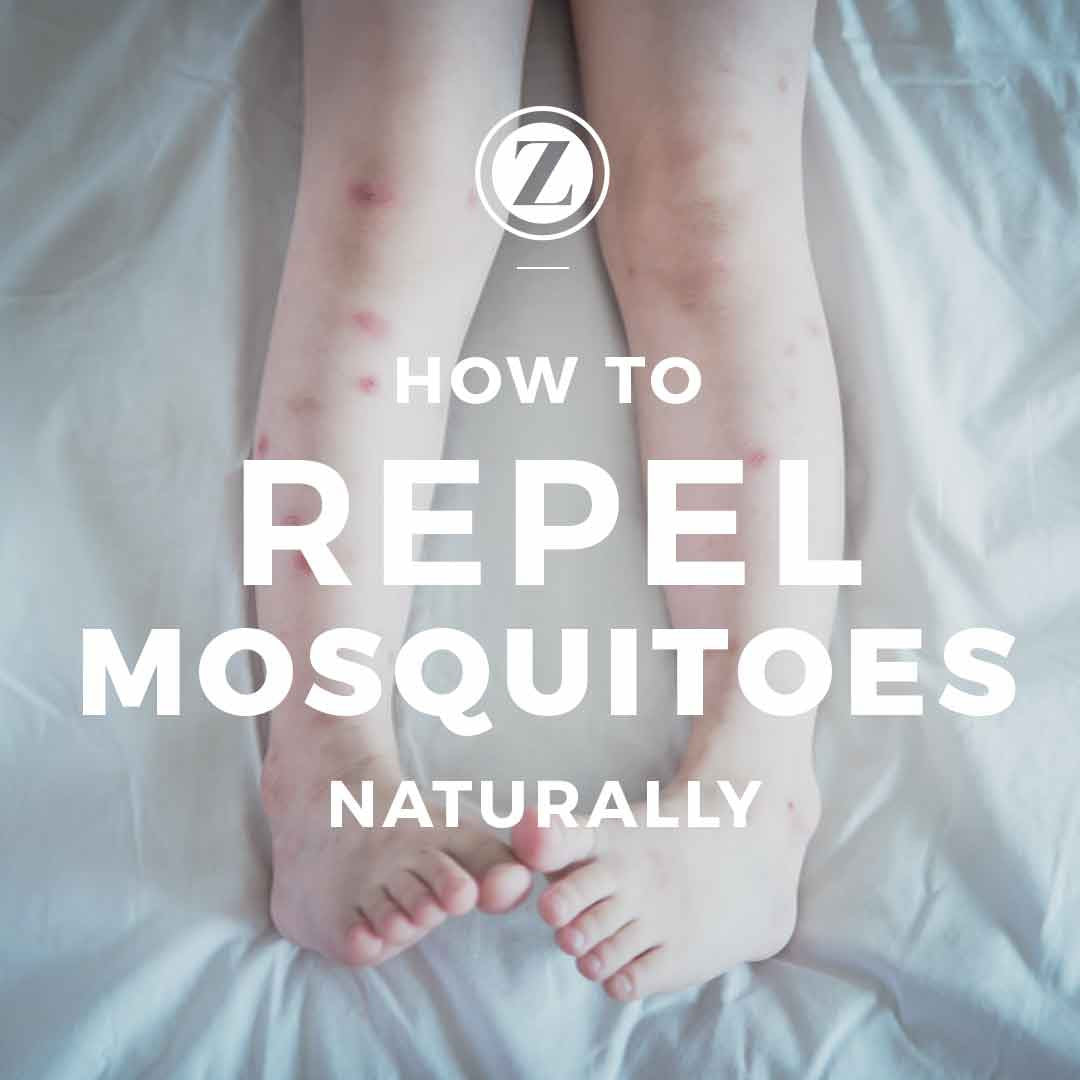

Comments on this post (1)
Thanks for this article!
— Nayna